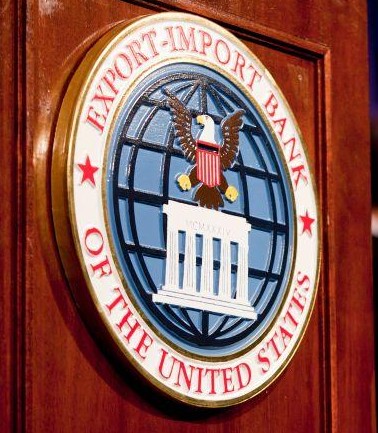International trade is a critical growth engine for the nation’s economic strength and prosperity. Today, we’re at several crossroads with many of our largest trading partners to ensure the U.S. is not unfairly disadvantaged in the global marketplace. As the Administration confronts these issues — including at a highly anticipated meeting between President Trump and China’s President Xi at the G-20 Summit this weekend – it’s vital for Congress to avoid shortsighted new policies that would undercut the very kinds of market access the U.S. is seeking to secure in these negotiations.
Unfortunately, that’s exactly what a proposal included in a bill to reauthorize the U.S. Export-Import Bank (Ex-Im) would do. Passing limits on the Ex-Im Bank that would limit American exports to China is what President Xi is lobbying for and exactly what Americans have been fighting against. Why Members of Congress would side with Chinese interests is hard to explain!
Ex-Im Bank, which provides financing and insurance to U.S. manufacturers and their foreign buyers that are paid for at market rates, is a critical tool that levels the playing field for American businesses while making a profit for the U.S. taxpayer. Other nations often give direct subsidies and government provided financing. We don’t do that. But with the Ex-Im Bank we try to give our businesses that export goods and services the ability to offer reasonable financing to their buyers if there are not other options.
While the Bank’s periodic authorization has historically been a bipartisan matter, it’s faced recent contention in Congress from conservatives who argue the federal government should not be involved in U.S. export sales. However, as I have argued before, in a world where our competitors in China, Russia, Brazil, France and most of Europe and South Africa continue to utilize their own versions of Ex-Im Bank and provide direct subsidies to reap the economic benefits of increased exports — for Americans to hamper our own Ex-Im Bank, only hurts U.S. companies and benefits of our competitors.
Unilateral disarmament won’t make the world safer from war. Likewise, unilateral trade disarmament won’t make the US more competitive or prosperous. In fact, all it will do is surrender business opportunities and jobs to our foreign competitors.
Unfortunately, a new provision tucked into a reauthorization bill that the House Financial Services Committee is scheduled to consider this week would restrict Ex-Im financing for transactions involving any Chinese state-owned entity with more than 25 percent Chinese ownership. This may sound tough against China, but it actually precisely aligned with China’s trade policies which exclude America from their markets. Simply stated, this provision would not only cut off the ability of American companies to export to China, but also to other countries and buyers where the Chinese are also engaged in the transactions.
America’s workers do not favor this proposed policy because it means exporting their jobs to our competitors. I can also guarantee you that China’s totalitarian government is hoping this proposals passes. They would love for us to take ourselves out of international competition. And China won’t be the only nation rooting for this misguided policy. Every competitor we have in the international marketplace will benefit from our unilateral economic disarmament.
Not only is this provision completely counterproductive to the President’s goal of reducing the U.S. trade deficit with China, it undermines the national economic benefits that come from growing U.S. exports all around the globe. Worse yet, this provision would single out the United States as the only country in the world imposing huge limits on doing business with state-owned and state-controlled enterprises through export credit agencies. This does nothing to advance American security or jobs. But it gives foreign competitors a huge upper hand over American companies — with the American economy and the American worker paying the price.
The undertaking of a long-term reauthorization bill is an admirable endeavor, especially in a way that attempts to avoid the brinksmanship of past reauthorizations that have threatened the Bank’s very existence and undercut certainty for American workers trying to compete overseas. For these reasons, it’s hard to imagine any member of Congress could stand behind a provision that would forfeit U.S. exports — and the manufacturing jobs that come with those exports — to our competitors around the world.
This is exactly the type of economic unilateral disarmament that American workers hope to avoid in this year’s timely reauthorization bill, and is the opposite of what the President is fighting for with our major trading partners around the world.
